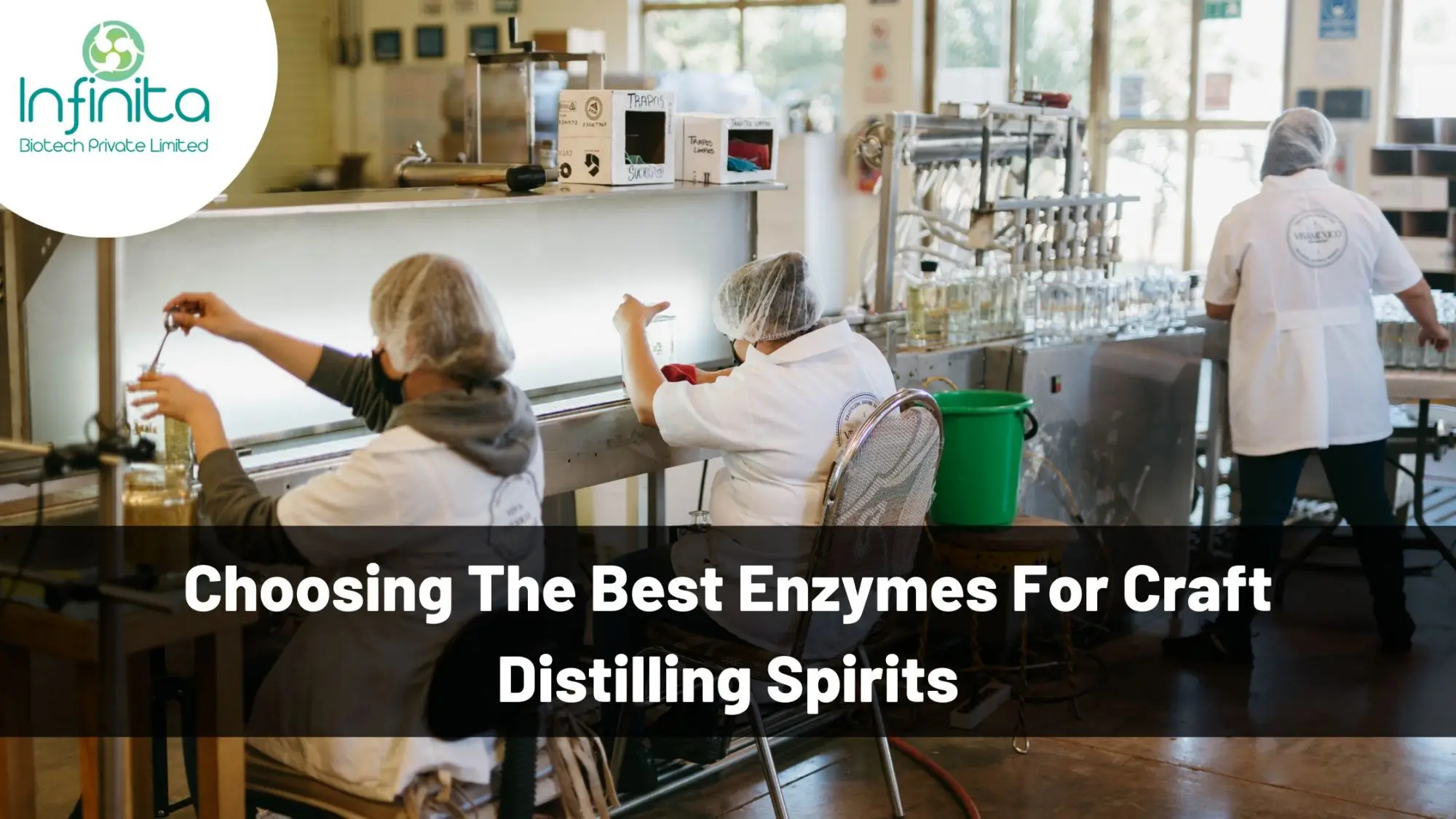Introduction to Enzymes in Craft Distilling
What are Enzymes?
Enzymes are biological catalysts that accelerate chemical reactions within living organisms. They’re crucial for various processes, including digestion and metabolism. In craft distilling, enzymes play a pivotal role in breaking down complex starches and proteins in grains, fruits, and other raw materials into simpler components, which can then be fermented and distilled into spirits.
Why Use Enzymes in Craft Distilling?
Enzymes have several benefits in craft distilling, including:
- Improved extraction of fermentable sugars
- Increased yield of alcohol
- Enhanced spirit quality and flavor
- Reduced processing time and energy consumption
By choosing the right enzymes for your craft distilling process, you can optimize your production and create unique, high-quality spirits.
Types of Enzymes for Craft Distilling
There are several types of enzymes commonly used in craft distilling, each with a specific function:
Amylase Enzymes
Amylase enzymes break down starches into fermentable sugars. They are essential for distilling spirits from grain-based substrates, such as whiskey and vodka. There are three main types of amylase enzymes:
Alpha-Amylase
Alpha-amylase works by breaking down the internal alpha-1,4-glycosidic linkages in starch molecules, producing maltose and dextrins. This enzyme is essential for liquefaction, which is the initial step in breaking down starches.
Beta-Amylase
Beta-amylase is responsible for breaking down the non-reducing end of starch molecules, releasing maltose units. This enzyme contributes to the saccharification process, where maltose and other fermentable sugars are produced.
Glucoamylase
Glucoamylase, also known as amyloglucosidase, breaks down dextrins into glucose by hydrolyzing the alpha-1,4 and alpha-1,6-glycosidic linkages. This enzyme is crucial for achieving complete saccharification, ensuring maximum fermentable sugar yield.
Protease Enzymes
Protease enzymes break down proteins into smaller peptides and amino acids. These enzymes can improve nutrient availability for yeast during fermentation, enhance flavor, and reduce haze in the final spirit.
Pectinase Enzymes
Pectinase enzymes are used when distilling fruit-based spirits, such as brandy and eau-de-vie. These enzymes break down pectin, a complex polysaccharide found in the cell walls of plants, into simpler sugars. Pectinase enzymes help with juice extraction, reduce haze, and enhance the clarity and flavor of the final spirit.
Factors to Consider When Choosing Enzymes
When selecting enzymes for your craft distilling process, consider the following factors:
Substrate Type
Choose enzymes that are appropriate for your specific raw materials. For example, use amylase enzymes when working with grain-based substrates, and pectinase enzymes for fruit-based spirits.
Temperature and pH Range
Different enzymes have different temperatures and pH optima. Ensure that the enzymes you choose are compatible with the temperature and pH conditions of your mashing and fermentation processes.
Enzyme Activity
Enzyme activity, measured in units, indicates the amount of enzyme required to catalyze a specific reaction under specific conditions. Select enzymes with suitable activity levels for your process to optimize efficiency and yield.
Top Enzyme Brands for Craft Distilling
Several enzyme manufacturers offer high-quality products for craft distilling. Some popular brands include:
- Novozymes
- DuPont (formerly Genencor)
- Kerry Group
- BSG Distilling
These companies offer a wide range of enzymes tailored for various substrates, temperature and pH conditions, and specific distilling requirements.
Conclusion
Choosing the best enzymes for craft distilling is crucial to ensure efficient processing, high alcohol yield, and superior spirit quality. By understanding the different types of enzymes and their functions, as well as considering factors such as substrate type, temperature, and pH range, you can make informed decisions and optimize your craft distilling process.

